|
|
|
|
|
|
|
|
|
Today, no Arctic-science events are scheduled.
|
Media
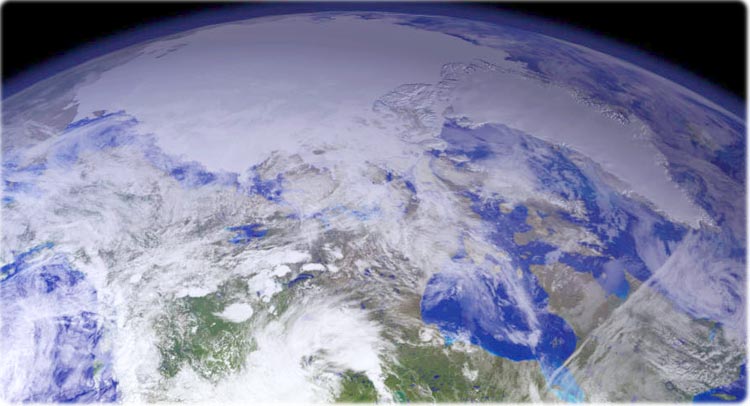 Survey: Potentials and Expectations of the Agreement on Enhancing Arctic Scientific Cooperation. Survey: Potentials and Expectations of the Agreement on Enhancing Arctic Scientific Cooperation. University of the Arctic has agreed to collect and provide information on the potentials and possible problems they have faced in getting access to Arctic and is being completed in conjunction with The Agreement on Enhancing Arctic Scientific Cooperation. This online survey is open to anyone who would like to contribute and its results will be shared in May 2019. Take the survey here.
"Including the North: A Comparative Study of the Policies on Inclusion and Equity in the Circumpolar North". This book, freely available here, is a product of the Arctic Council's Sustainable Development Working Group, and has been approved by all Senior Arctic Officials.
BMW Testing New EVs Beyond the Arctic Circle. German car manufacturer BMW has posted a video showing its all-electric iX3, i4, and iNEXT vehicles during a test drive on testing grounds in Arjeplog, Sweden, which is bordering on the Arctic Circle. The engineer team wanted to use the extremely cold environment to test the reliability of all electronic systems and the suspension (more specifically, the integrity of all suspension parts and the stability of their physical characteristics after a series of rapid temperature changes). The company also used the opportunity to test its prototype electric engine and traction battery designs. FormaCar
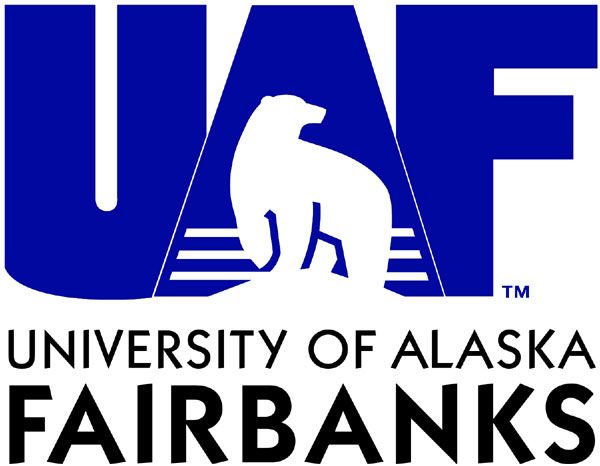 UAF Gets New Instrument for Stable Isotope Facility. UAF Gets New Instrument for Stable Isotope Facility. The University of Alaska Fairbanks will soon have another way to gather information from samples the size of a fingernail, courtesy of a new instrument in the Alaska Stable Isotope Facility. The new instrument, which is yet to be installed at the facility, is called a gas chromatograph isotope ratio mass spectrometer. It can chemically target individual bits of carbon to allow researchers a deeper understanding of various organisms. Fairbanks Daily News-Miner
Inuit Skill Mitigates Change in Travel Conditions. The travel skills of Inuit peoples have mitigated against the changes in environmental conditions wrought by climate change. That's according to researchers who studied communities in the eastern Canadian Arctic and found that trail access was affected much less than expected. "Previous studies on Arctic transportation and climate change do not take into consideration different types of trail users," says James Ford of the University of Leeds, UK. Physics World
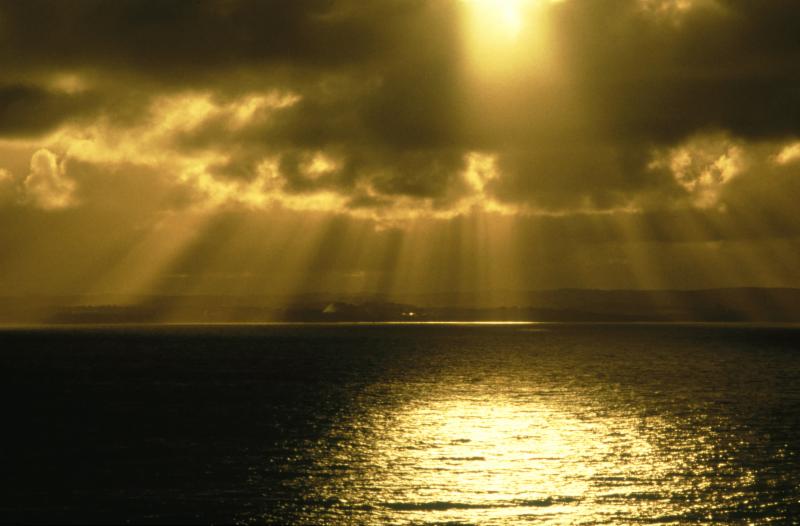 Researchers Unveil Effects of Dust Particles on Cloud Properties. Researchers Unveil Effects of Dust Particles on Cloud Properties. An international team led by Japanese scientists has generated significant findings that highlight the impact of high-latitude dusts on the conversion of clouds' water droplets to ice - or glaciation - within low-level clouds in the Arctic region. These results contribute to a better understanding of factors at the land surface and how they affect cloud formations. The research findings also add to a better understanding of how climate is affected by clouds, which are increasingly considered to be among the most important -- yet complex -- regulators of the global climate. EurekAlert!
Groups Say They Will Sue Unless EPA Renews Efforts to Restrict Oil Spill Dispersants. A coalition of environmental and public health advocates say they will sue the federal government unless it takes action to restrict the use of dispersants for oil spill cleanup. The plaintiffs say the federal Environmental Protection Agency is shirking its duty to update its rules so that they reflect the latest science on how dispersants affect the environment. They argue the update is especially urgent now that the Trump administration is moving to expand offshore oil leasing, including in Arctic waters. Alaska Public Radio
|
|
Future Events
Public Lecture: Sea Level Rise and What We Should Do About It, March 27, 2019 (Washington, DC, USA). The National Academies of Sciences, Engineering and Medicine hosts this event. How are melting ice sheets causing sea level rise and what can we do about it? The ice sheets in Greenland and Antarctica, along with glaciers and ice caps around the world, are melting faster than anticipated as a result of climate change caused by greenhouse gases from human activities. This rapid evolution--resulting from complex interactions between the atmosphere, the ocean, and ice--has been captured in great detail by a growing body of observational platforms that include satellites, aircraft, underwater floats, and autonomous gliders.
** New this week ** Using Field Observations and Biophysical Transport Models to Examine the Early Life Ecology of Arctic Gadids in the Chukchi and Beaufort Seas, March 28, 2019 (Seattle, Washington USA and via webinar). Par of the OneNOAA Science Seminars, Cathleem Vestlfals, post-doctoral fellow at the University of Alaska Fairbanks, will present. Arctic cod (Boreogadus saida) and saffron cod (Eleginus gracilis) are two ecologically important species in the Arctic marine ecosystem, yet little is known about their life history in the Pacific Arctic. In particular, information about their spawning locations and early life stages is extremely limited. To address some of these critical knowledge gaps and to better understand the early life histories of these species, we described the spatial and temporal distributions of their early life stages (ELS, preflexion larvae to late juveniles) in the Chukchi and western Beaufort seas based on ichthyoplankton surveys conducted in 2004, 2008, 2009, 2012, and 2013, and examined how their distributions varied in response to environmental factors.
 of the AAG includes over 8,500 geographers converging from the U.S., Canada, and nearly 60 other countries in a typical year including geographers, GIS specialists, environmental scientists, and other leaders for the latest in research and applications in geography, sustainability, and GIScience. of the AAG includes over 8,500 geographers converging from the U.S., Canada, and nearly 60 other countries in a typical year including geographers, GIS specialists, environmental scientists, and other leaders for the latest in research and applications in geography, sustainability, and GIScience.
** New this week ** Arctic "Incidents of National Significance" (IoNS) workshop, 18-19 Apr 2019, (Nome, Alaska USA). In coordination with Alaska Natives and other rural Arctic residents, Arctic IoNs planners, organized by the Arctic Domain Awareness Center (ADAC), will conduct a workshop at the UAF NW Campus to discuss the scenario of a large/violent Bering Sea storm that disables a large container ship which loses many containers, some with hazardous materials, followed by damage to coastal structures along the coast. The outcomes will inform a subsequent workshop at UAA in late May and a final report. Workshop discussions will involve experts from many sectors, and will reveal the research necessary to address capability shortfalls that are anticipated to be addressed by funded science and technology awards administered by ADAC. More information, including that on registration, is available here.
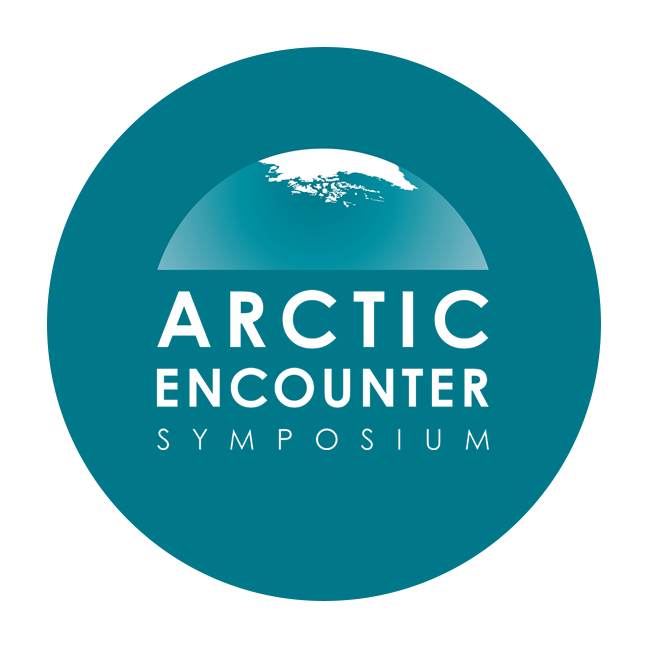 The 6th Annual Arctic Encounter Seattle, April 25-26, 2019 (Seattle, WA, USA). The sixth annual Arctic Encounter Seattle will engage the topic of innovation in the Arctic, specifically disruptive business and investment models, energy and power, climate research, national security, new economic and trade models, and popular media and awareness movements impacting the Far North. The two-day Arctic Encounter Seattle will include an opening reception, two continental breakfasts, two keynote luncheons, a networking reception with Alaskan glacier ice cocktails, and a seated three course dinner including keynotes and live musical entertainment from the Far North. The Arctic Encounter is the largest annual Arctic policy and business conference convening in the United States, with partnerships and convening efforts worldwide. Registration is now open. Additional information is available here. The 6th Annual Arctic Encounter Seattle, April 25-26, 2019 (Seattle, WA, USA). The sixth annual Arctic Encounter Seattle will engage the topic of innovation in the Arctic, specifically disruptive business and investment models, energy and power, climate research, national security, new economic and trade models, and popular media and awareness movements impacting the Far North. The two-day Arctic Encounter Seattle will include an opening reception, two continental breakfasts, two keynote luncheons, a networking reception with Alaskan glacier ice cocktails, and a seated three course dinner including keynotes and live musical entertainment from the Far North. The Arctic Encounter is the largest annual Arctic policy and business conference convening in the United States, with partnerships and convening efforts worldwide. Registration is now open. Additional information is available here.
North X North Festival, May 1-5, 2019 (Anchorage, Alaska USA).The third annual North x North Summit & Festival celebrates connection and culture across the North. The event features five days of conversations, workshops, exhibitions, performances, presentations, music, dance, installations, food, film and experiences highlighting Northern people, landscapes and cultures.The Summit (May 1-2), which is open to registered participants, focuses on resilience and research, with a special emphasis on gender and Indigenizing. The Festival (May 3-5) is open to the general public and features activities and conversations around climate, gender, innovation, food, indigenizing and earthquakes.
2019 Bering Strait Regional Energy Summit, May 7-9, 2019 (Nome, Alaska USA). This event is hosted by the Kawerak Energy Program. Regional residents, stakeholders and partner organizations are invited to come together to learn about energy resources. Attendees will share experiences with energy in their communities, gain knowledge about new energy technologies and funding sources, and help to develop creative ideas for decreasing the cost of energy in the Bering Strait Region by developing efficient, affordable, and sustainable energy projects. For more information or to receive a registration form by fax, please send an email to energy@kawerak.org or call (907) 443-4253. To receive travel funding, all registration forms must be received by April 19, 2019.
Lowell Wakefield Fisheries Symposium, May 7-10, 2019 (Anchorage, Alaska USA). This symposium aims to provide a forum for discussion on ways to facilitate effective cooperative research, a platform for scientific talks on the application and results of cooperative research, and opportunity to evaluate how such research might be best envisioned, applied and implemented. The symposium aims to involve participants from a variety of relevant marine industries, address these issues through facilitated discussion, identify best practices, and articulate a set of case studies for effective collaboration. The symposium also aims to involve scientists from a wide range of sectors, including state and federal agencies, universities, research institutes and industry science. This event is sponsored by Alaska Sea Grant College Program.
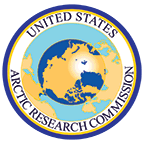 ** New this week ** US Arctic Research Commission meeting, May 10, 2019 (Anchorage, Alaska USA) ** New this week ** US Arctic Research Commission meeting, May 10, 2019 (Anchorage, Alaska USA)
 |
|  | Commissioners Mayer, Ulmer, and Greene
|
. The 111th meeting of the USARC will be held in the Captain Cook's Endeavor Room from 8:30 am to 4:00 pm. The commission will debut its new, biennial "Report on the Goals and Objectives for Arctic Research 2019-2020 for the US Arctic Research Program Plan" and will hear presentations on Arctic research from invited speakers. A detailed agenda will be provided later at this link.
** New this week ** Arctic and Boreal Carbon: Key Findings from the State of the Carbon Cycle Report, May 14, 2019 (Silver Spring, Maryland USA or via webinar). This is seminar 10 in the Series: From Science to Solutions: The State of the Carbon Cycle, the 2nd State of the Carbon Cycle Report (SOCCR2). The speaker is Dr. Ted Schuur from the Center for Ecosystem Science and Society at Northern Arizona University. Dr. Schuur will present on changing factors that control terrestrial carbon storage in unmanaged arctic and boreal ecosystems. Surface air temperature change is amplified in high-latitude regions, as seen in the Arctic where temperature rise is about 2.5 times faster than that for the whole Earth. Permafrost temperatures have been increasing over the last 40 years.
** New this week ** Synoptic Arctic Survey - International Planning and Coordination Workshop, May 15-16, 2019 (Woods Hole, Massachusetts, USA). An open coordination and planning workshop will be held to continue planning the Synoptic Arctic Survey (SAS). The SAS is a developing international program envisioned to mount a coordinated, multi-nation, oceanographic field based effort on a Pan Arctic scale over two summer seasons (2020-2021). The key objective is to achieve a quasi-synoptic baseline understanding of the fundamental structure and function of the linked Arctic carbon-ecosystem-physical systems that will permit detection of ongoing and future changes. More information and the international science plan is available here. More info on participating in this workshop is available here.
Arctic Science Summit Week, May 22-30, 2019 (Arkhangelsk, Russia). The Arctic Science Summit Week 2019 will take place in Northern (Arctic) Federal University and Northern State Medical University, Russia, Arkhangelsk. Under the auspices of International Arctic Science Committee, participants from more than 23 countries and regions will be involved.
Resilience in Rapidly Changing Arctic Systems, proposals close June 14, 2019. This joint Belmont Forum CRA calls for co-developed and co-implemented proposals from integrated teams of natural and social scientists, and stakeholders to address key areas of arctic resilience understanding and action. This collaboration of academic and non-academic knowledge systems constitutes a transdisciplinary approach that will advance not only understanding of the fundamentals of arctic resilience but also spur action, inform decision-making, and translate into solutions for resilience. The term "stakeholder" is used here in its broadest possible sense, allowing for co-development of projects with partners from, but not limited to, civil society, government, industry, NGOs, and Indigenous organizations.
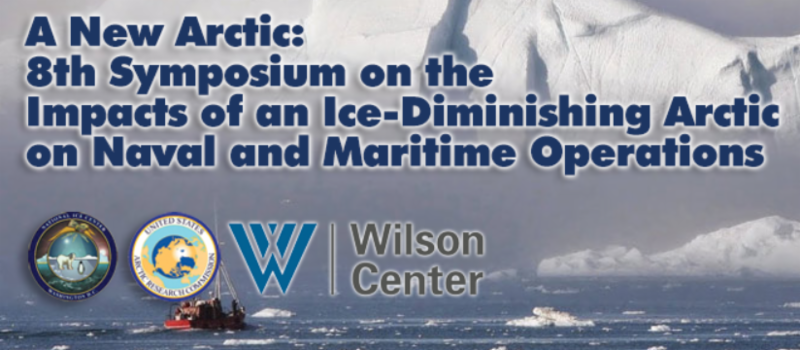
Mark your calendars to attend IDA-8, which some have called one of the best Arctic gatherings around. Historically, this biennial symposium was co-hosted by U.S. National/Naval Ice Center (NIC) and the US Arctic Research Commission (USARC). In 2019, these partners will join forces with the Wilson Center's Polar Institute, and the Patuxent Defense Forum (run by the Patuxent Partnership) as co-hosts. The now 2-day symposium will be held in the Ronald Reagan Building Amphitheater, in Washington, DC. The event will focus on a broad cross-section of naval and maritime operations and issues in an ice-diminishing Arctic. The symposium brings together nationally and internationally recognized experts on Arctic governance, geopolitics, marine operations, infrastructure, science, and environmental observations, from the local, regional, and pan-Arctic scale. Information on prior symposia, including lists of speakers, video clips, and copies of presentations, is available here. Attendance is free, and registration will begin in Spring 2019. The event will be webcast live, and video recorded.
2019 Sea Ice Symposium, August 18-23, 2019 (Winnipeg, Manitoba Canada). IGS co-hosts a sea ice symposium every 5 years. The Centre for Earth Observation Science (University of Manitoba) is excited to be hosting the first IGS event to be held in Canada. The symposium will include oral and poster sessions, and will provide a friendly and intellectually stimulating environment to facilitate face-to-face interactions and networking. Additional activities will include an opening reception, a banquet dinner and a mid-symposium afternoon excursion.
EU Arctic Forum, October 3-4, 2019 (Umeå, Sweden). The European Commission, the European External Action Service, and the Government of Sweden will jointly organize a high-level EU Arctic Forum. The EU Arctic Forum will bring together key Arctic players and stakeholders to assess recent developments in the region and to discuss the new challenges ahead.The EU Arctic Forum will include several keynote addresses and two high-level panel sessions on the morning of 3 October. Foreign ministers from EU member states as well as the Arctic Council will be invited to participate.
|
|

  
4350 N. Fairfax Drive, Suite 510
Arlington, VA 22203, USA
External links in this publication, and on the USARC's World Wide Web site ( www.arctic.gov) do not constitute endorsement by the US Arctic Research Commission of external Web sites or the information, products or services contained therein. For other than authorized activities, the USARC does not exercise any editorial control over the information you may find at these locations. These links are provided consistent with the stated purpose of this newsletter and the USARC Web site.
|
|
|
|
|
|
|
|
|